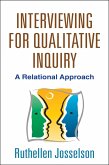What principles should guide an empowerment evaluation? And how can these principles actually be put into practice? One of the primary tasks in an empowerment evaluation (EE) is to increase the capacity of program stakeholders to plan, implement, and evaluate their own programs. This book presents the most current formulation of the 10 principles of EE and provides professionals and students with the tools to put these principles into practice. Through case studies of diverse evaluation projects--including community health foundation initiatives, school district programs, and a $15 million corporate program aimed at bridging the digital divide--the founder and leading proponents of EE clarify key concepts and discuss important lessons learned. Coverage includes how to balance program improvement efforts with accountability requirements; how EE can be used to guide standards-based work; how to use EE in a learning organization; the differences among empowerment, collaborative, and participatory evaluation; and much more.
Dieser Download kann aus rechtlichen Gründen nur mit Rechnungsadresse in A, D ausgeliefert werden.
"This is an emancipating 21st-century book that provides an exciting venue for assessing outcomes of service learning. Its evidence-based conceptual model defines the role of the evaluator in concert with community enhancement and program achievement. This book is ideal for educating health care professionals and students engaged in service learning, as well as community stakeholders. It has great potential as a text for undergraduate and graduate students. I would consider this book for both professional and course use."--May L. Wykle, PhD, RN, FAAN, Dean and Cellar Professor of Nursing, Frances Payne Bolton School of Nursing, Case Western Reserve University"Empowerment evaluation signals the end of the days when evaluation was done in isolation of staff members and program participants. The 'new age' of evaluation enables groups to achieve programmatic goals by putting the power in the hands of those individuals who know their programs and have a stake in seeing the programs succeed. Fetterman and Wandersman give us the principles and the tools to build stronger communities through empowerment evaluation and to develop systems that incorporate evidence-based strategies. This text is easy to use and takes the reader from an overview of classic evaluation methods to the heart of empowerment for success. Thus, graduate students, novice evaluators, and experienced professionals can easily grasp the message and understand the process provided."--Shirley S. Travis, PhD, APRN, FAAN, Dean, College of Nursing and Health Science, George Mason University"Fetterman and Wandersman have made a wonderful contribution to evaluation theory and literature with this book. It's no accident that the 'in practice' part of the title is printed in red--that is the focus of this work. Beginning where the earlier text Empowerment Evaluation left off, this volume clarifies the 10 principles of empowerment evaluation and applies them to real-world settings in detailed case studies. The editors and contributors have successfully revealed the 'heart and soul' of empowerment evaluation and enthusiastically offer it as a method that can be learned and mastered by any evaluation professional or student who is willing to try."--Frances D. Butterfoss, PhD, Center for Pediatric Research, Eastern Virginia Medical School"The authors' framework is clearly laid out, well illustrated, and inspiring, and the results are compelling. I've made this book required reading for myself and my staff as we work with schools around the state on a five-year program designed to support schoolwide social and emotional learning (SEL)."--Mary Utne O'Brien, PhD, Executive Director, Collaborative for Academic, Social, and Emotional Learning (CASEL), and Research Professor, Departments of Education and Psychology, University of Illinois at Chicago"This updating of the important concept of empowerment evaluation is ideal for those who teach and carry out human service evaluations. The editors and many of the contributing authors are pioneers in the field, and bring the ideas up to date with accessible examples that will help newcomers to the field understand and use this valuable and humanistic approach to program evaluation. In the classroom, this book will serve as a readily adaptable and applicable text."--Leon Ginsberg, Dean, College of Social Work, University of South Carolina"Since its introduction by David Fetterman in 1994, empowerment evaluation has spread like wildfire across the globe. From disadvantaged schools and communities to NASA and to corporate offices in South Africa, the 10 principles of empowerment evaluation are being embraced and applied to foster self-evaluation and self-determination. What is it about empowerment evaluation that appeals so much to evaluation clients and stakeholders from all walks of life? The answer lies in this new volume, the most comprehensive, readable, and up-to-date treatment of this evaluation approach. I highly recommend this text t
Es gelten unsere Allgemeinen Geschäftsbedingungen: www.buecher.de/agb
Impressum
www.buecher.de ist ein Internetauftritt der buecher.de internetstores GmbH
Geschäftsführung: Monica Sawhney | Roland Kölbl | Günter Hilger
Sitz der Gesellschaft: Batheyer Straße 115 - 117, 58099 Hagen
Postanschrift: Bürgermeister-Wegele-Str. 12, 86167 Augsburg
Amtsgericht Hagen HRB 13257
Steuernummer: 321/5800/1497
USt-IdNr: DE450055826
Bitte wählen Sie Ihr Anliegen aus.
Rechnungen
Retourenschein anfordern
Bestellstatus
Storno









